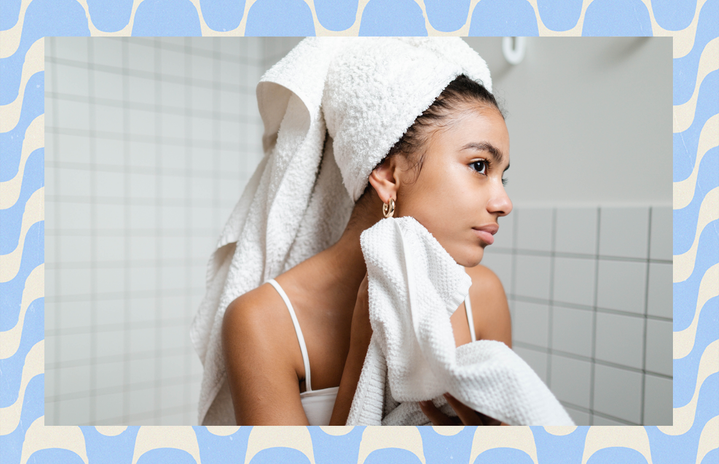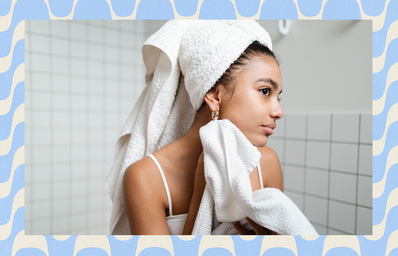I, as well as plenty of Gen Z’ers active on social media, have been finding a growing trend and emphasis towards “self-care”. Specifically, I’ve been seeing a lot of these concepts appear through self-care-based Instagram and TikTok accounts or blogs, where people project an idealized “perfect” lifestyle of skin care products, consistently healthy diets, and aesthetically-curated Instagram grids. However, I’ve also noticed that in this push towards a “self-care” lifestyle, whether through blogs or advice threads, there is a pattern in the practices they emphasize. These practices are undeniably good habits to maintain, such as exercise or drinking more water, but for the most part, also come from a position of privilege and commodify the concept of self-care for many of us.
The truth is, holding ourselves to the standards of influencers with the time and money they have to maintain their “well-kempt” lifestyles is unrealistic. For example, some popular healthy habits I’ve noticed in “self-care” accounts include waking up at 7 A.M periodically, practicing yoga every morning, or cooking themselves a unique homemade meal every evening. Or, influencers may talk about how “treating ourselves” is a necessary part of self-care – through getting manicures, massages, and a plethora of skin care products. We see videos and Instagram posts of curated aesthetic feeds with carefully placed coffee mugs, promoted products, and a spacious, minimalistic house that emphasizes “cleanliness”. Yes, these are all healthy practices and methods to take care of ourselves, but many of us do not have the same time, money, or privileges that often come with maintaining these lifestyles.
One person being able to sleep at 8 P.M. to wake up at the crack of dawn, practice an hour of yoga, and then create a foam heart on top of their coffee mug for a later Instagram post may not be an achievable daily routine for a college student balancing a minimum wage job to pay the bills while simultaneously finishing their homework and studying for exams. Or, self-care accounts that advocate the same “life-changing” barrage of tips like drinking more water and daily journaling may be good practices but are also shallow and surface-deep advice that doesn’t provide much deeper information outside of a projected “image” of self-care. In other words, self-care in the modernized, social media age has become less of a genuine move towards bettering oneself and more of a maintained “aesthetic” of minimalism and “Instagrammability” for those who can afford it.
Influencers on social media often stylize their lifestyles, and this can include how they document their self-care. Of course, there’s nothing wrong with that being a route of self-care, but for people without the resources such as time, or for those struggling with mental illness or tighter financial situations, self-care often falls under fulfilling your human needs. Real self-care for many of us is not the “overnight” process that many self-care-related accounts and influencers seem to project, where we immediately become accustomed to waking up at 6 A.M. and changing our dietary habits around. When we put ourselves under pressure to live the same lifestyles we see online, committing to self-care becomes harder to obtain when you feel like you can’t commit to these standards and want to give up.
When I started college, I was completely dead set on living the same curated lifestyles I saw online from TikTok and Instagram influencers. Despite not being a morning person, I tried to set multiple alarms for 7 A.M., and I was sure that I could finish all my homework before noon so I could clean the entire house, read a full-length novel, watch a movie, and also go to sleep at an appropriate time. I also spent money on skincare products and tried to do jogs in the mornings– despite not having exercised since high school. It’s not an exaggeration to say the pressure I put myself under to make this lifestyle an “overnight” process made me want to immediately give up as soon as one of these tasks fell out of schedule. If I suddenly got too tired to jog or finished my homework in the afternoon instead of noon, I’d want to scrap my entire plan and think, “Oh well, I’ll just do it next week.” And this cycle kept repeating for a few months before I tried a new approach of slowly building a routine with what I could handle. Since I’m not a morning person, I allowed myself to wake up at 11, and today, I could figure out my skincare routine and clean my drawers. Tomorrow, I could start cleaning out my shelves in the afternoon and do homework before dinner instead of squeezing it in before lunch. If a plan fell through, I would remind myself “It’s okay” and that I could retry that task the next day instead of just giving up.
The true path towards self-care to benefit your mental or physical well-being means we do what we can do to take care of ourselves and recognize how we can accommodate this to our own bodies. This can look like using your weekend to sleep in until noon, or even just making sure you fully shower and brush your teeth twice a day. It’s important to make sure that you remember to reach out to your loved ones today, even if just through a quick text. It means we realize how to properly take care of our bodies and health, and can carefully build and cater to these habits every day in a way that is accessible, affordable, and possible for steady, long-term improvement.
But for other times– it’s important to remember that we don’t have to always be productive, too. We’re also allowed cheat days and occasional fast food and staying in bed all day instead of sticking to a rigid structure that appears to be easily maintained through the lens of social media. It’s okay to want to take a day off class if you’ve been attending every other day this term. Life is not as glamorous as what is advertised to us, and we shouldn’t be pressured into thinking we have to do things we don’t like for the purpose of “self-care”.
Overall, self-care is a very subjective process that differs for everyone in accordance with their individual needs and situations to achieve better mental or physical health. Sure, drinking enough water and exercising are important and necessary, but not when it’s the same repeated advice advertised to be the only “surefire” and “life-changing” practices. The problem with these self-care accounts is often their inability to recognize this and project the same few shallow pieces of advice under the pretense that they lead to a better lifestyle. Self-care often involves time and layers of work and effort to make a real change, and it’s important to acknowledge that the first step should be realizing one singular path is not for everyone. From there, we can start building our own daily routines and structures to actually take care of ourselves and benefit our lives long term.


